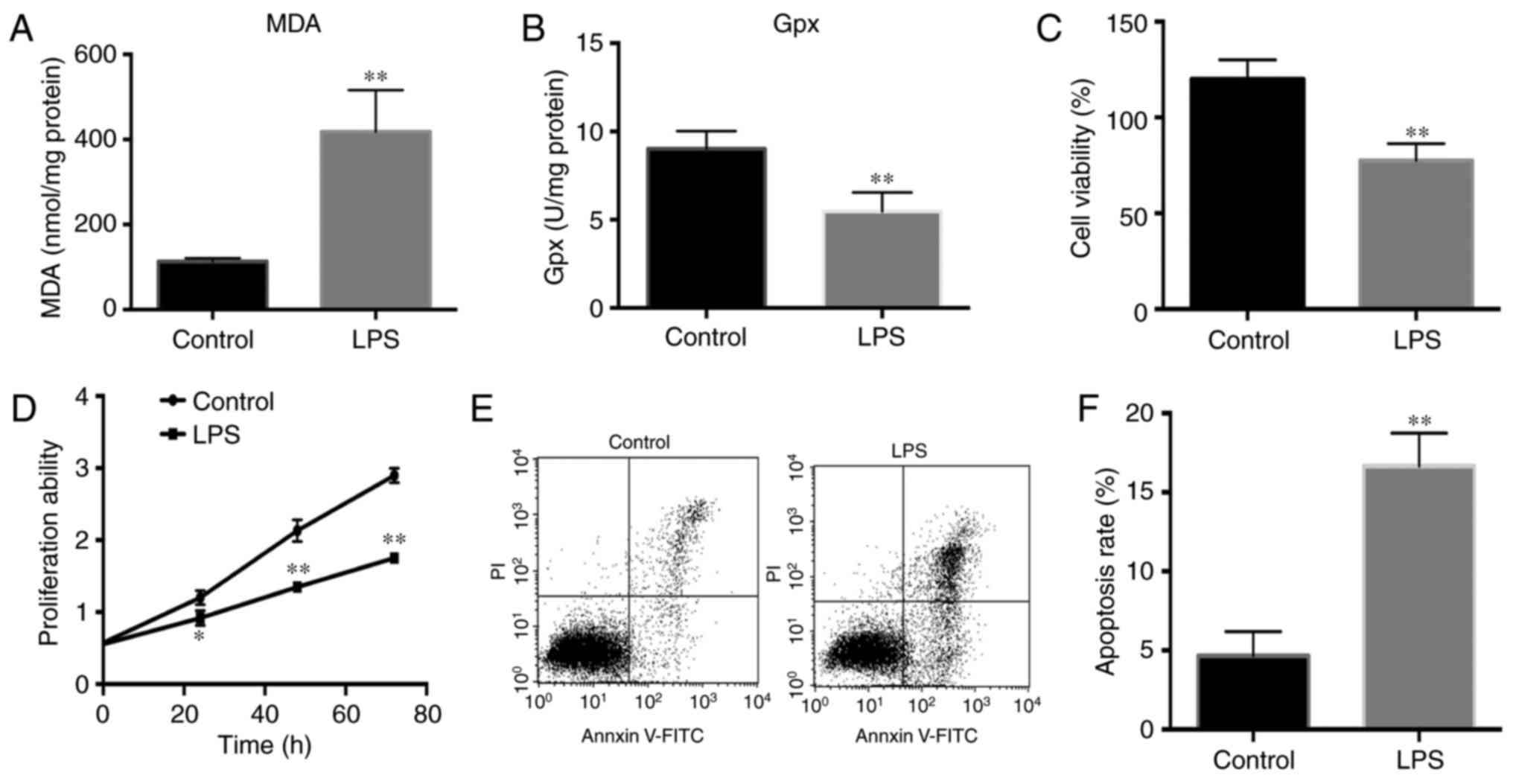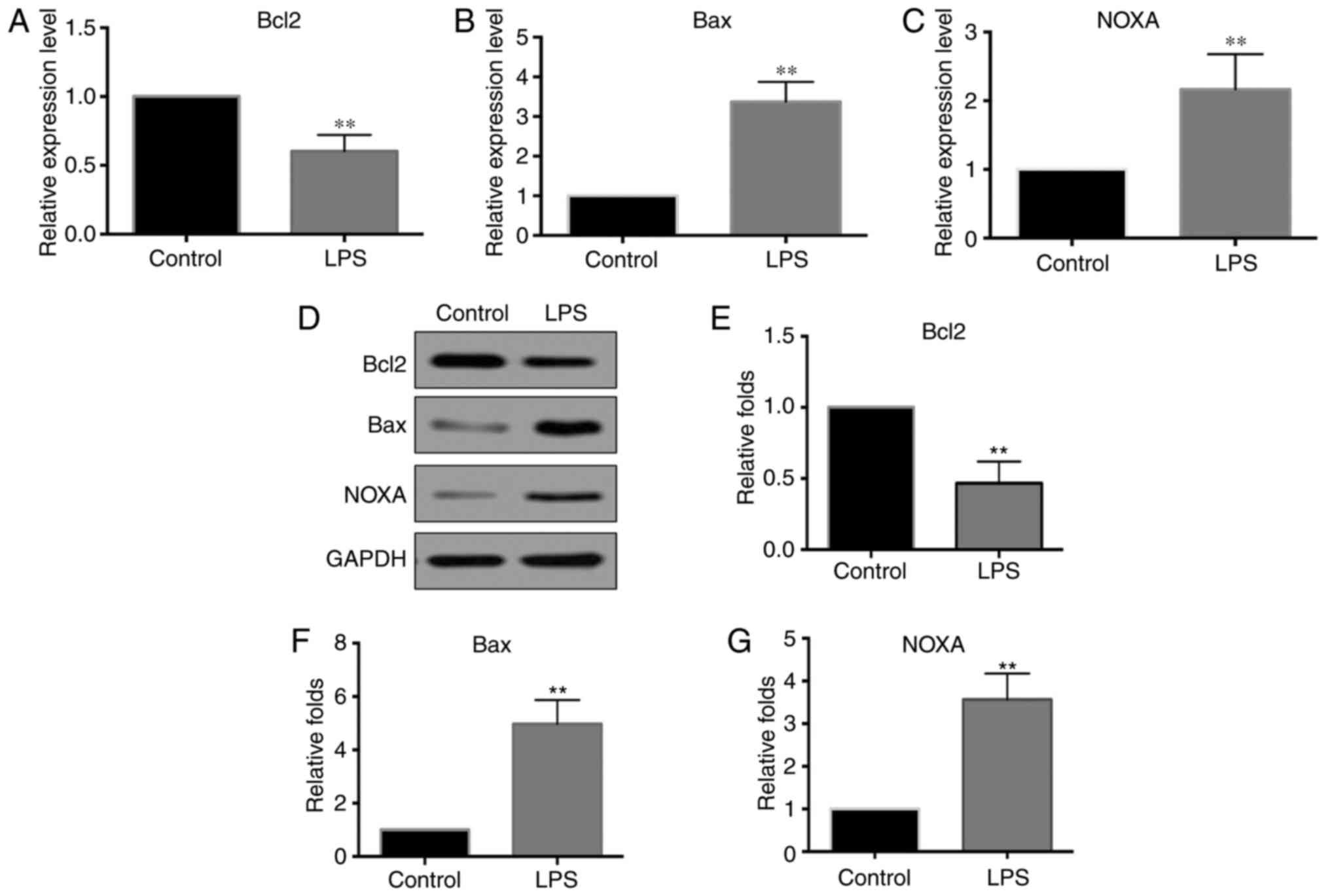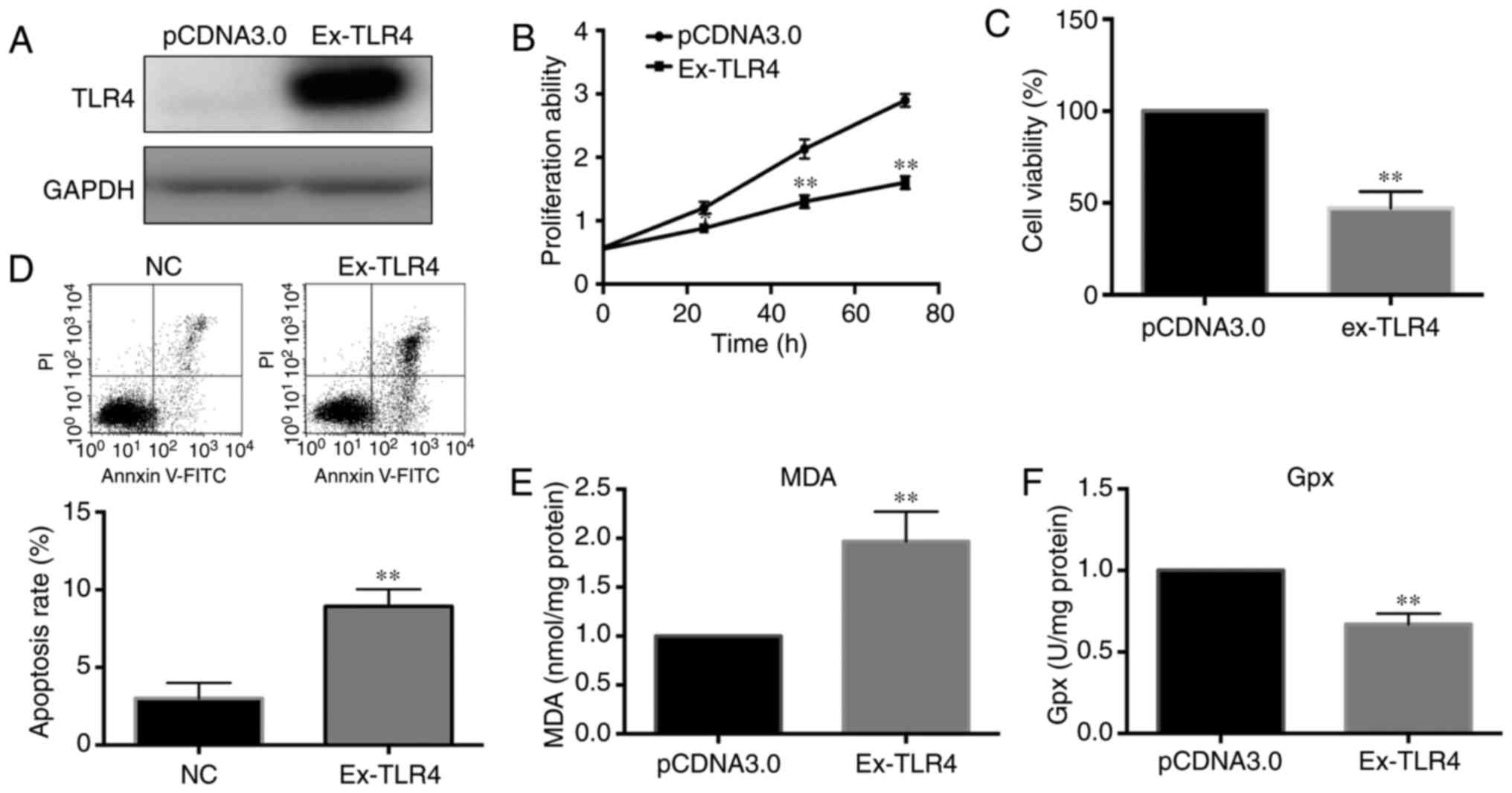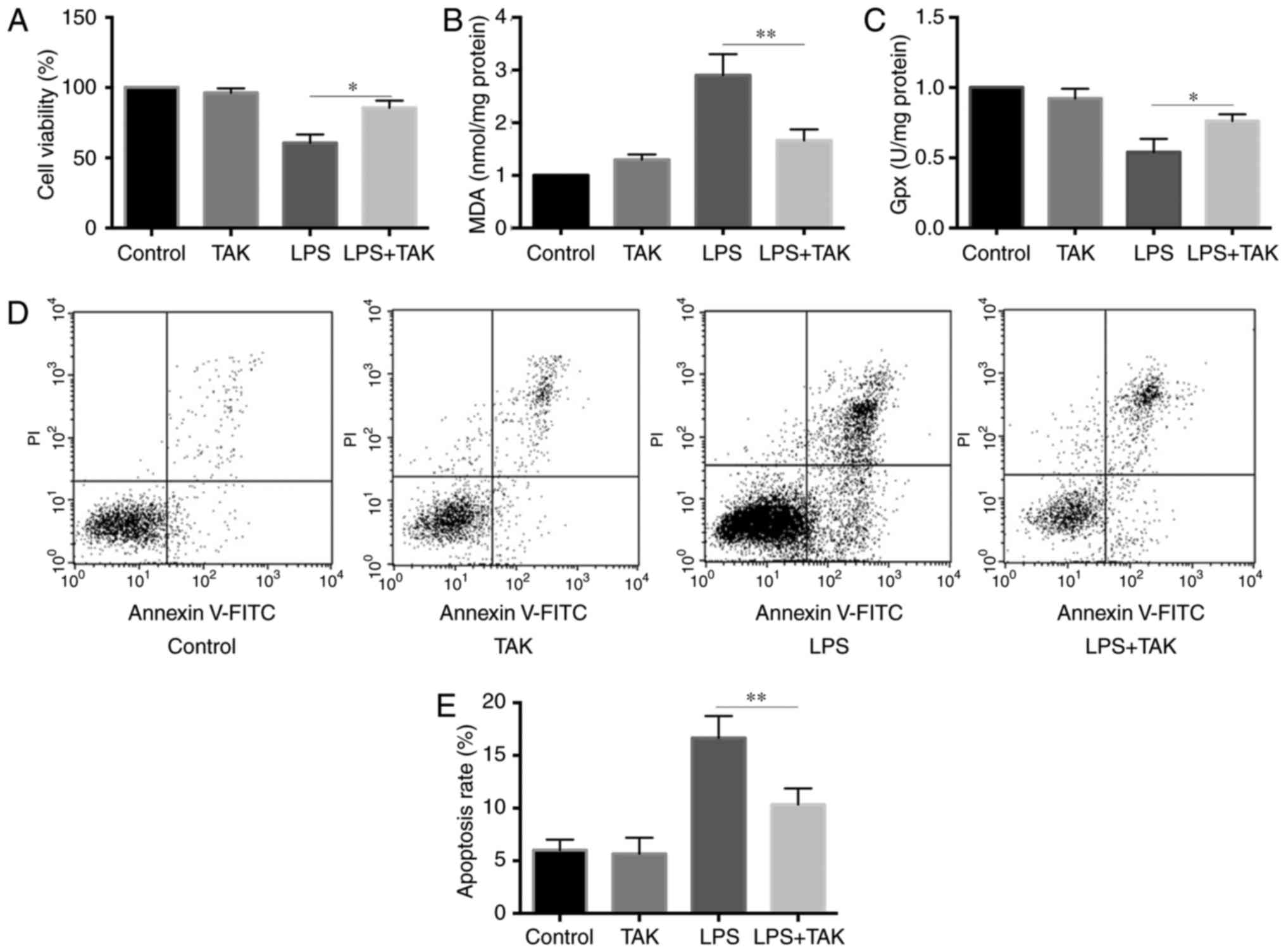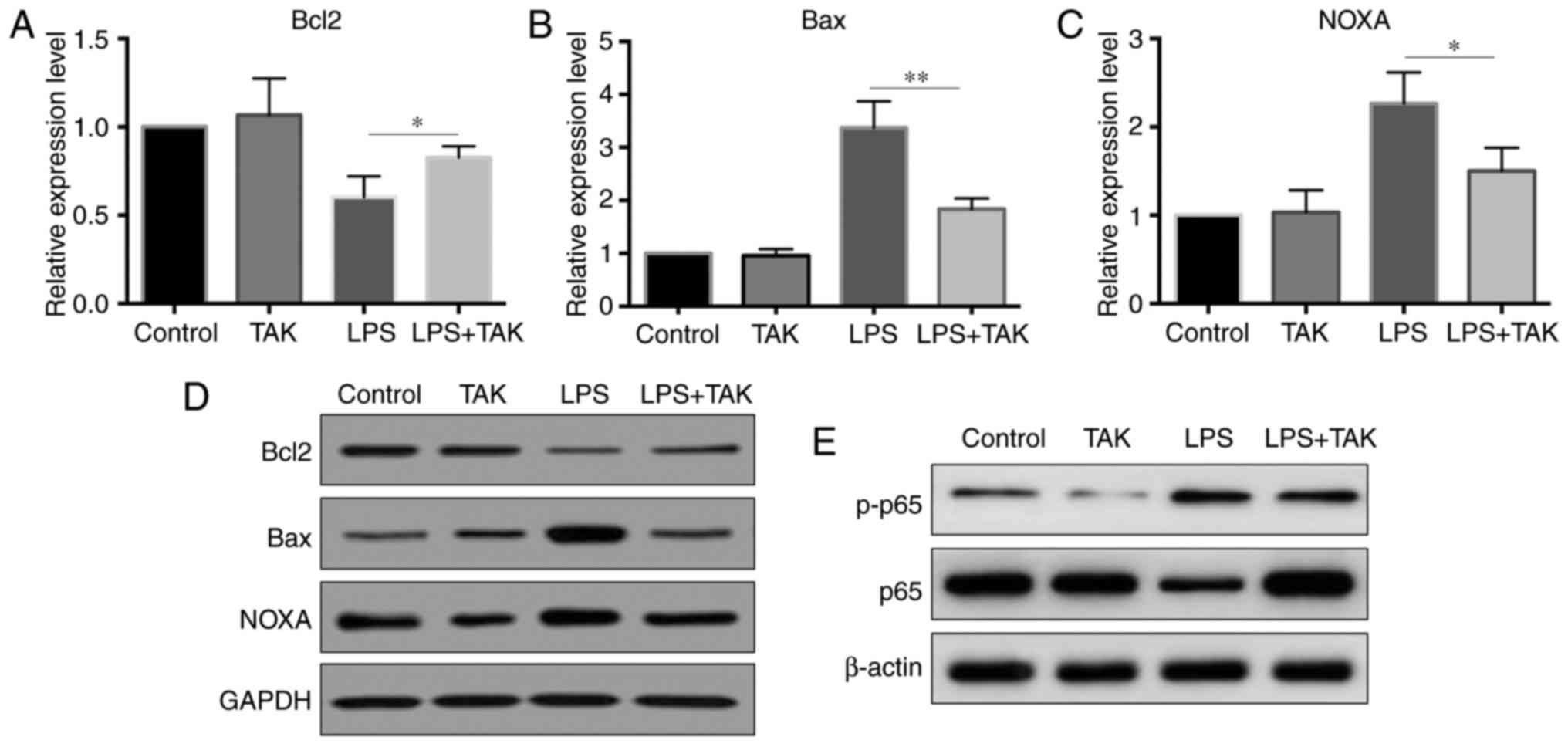|
1
|
LaRusch J, Solomon S and Whitcomb DC:
Pancreatitis Overview. GeneReviews(R). Pagon RA, Adam MP, Ardinger
HH, Wallace SE, Amemiya A, Bean LJH, Bird TD, Ledbetter N, Mefford
HC, Smith RJH, et al: University of Washington; Seattle, WA:
1993
|
|
2
|
Charbonney E and Nathens AB: Severe acute
pancreatitis: A review. Surg Infect (Larchmt). 9:573–578. 2008.
View Article : Google Scholar
|
|
3
|
Kawagishi H and Finkel T: Unraveling the
truth about antioxidants: ROS and disease: Finding the right
balance. Nat Med. 20:711–713. 2014. View
Article : Google Scholar : PubMed/NCBI
|
|
4
|
Shi C, Andersson R, Zhao X and Wang X:
Potential role of reactive oxygen species in
pancreatitis-associated multiple organ dysfunction. Pancreatology.
5:492–500. 2005. View Article : Google Scholar : PubMed/NCBI
|
|
5
|
Booth DM, Mukherjee R, Sutton R and
Criddle DN: Calcium and reactive oxygen species in acute
pancreatitis: Friend or foe? Antioxid Redox Signal. 15:2683–2698.
2011. View Article : Google Scholar : PubMed/NCBI
|
|
6
|
Simon HU, Haj-Yehia A and Levi-Schaffer F:
Role of reactive oxygen species (ROS) in apoptosis induction.
Apoptosis. 5:415–418. 2000. View Article : Google Scholar
|
|
7
|
Park J, Min JS, Kim B, Chae UB, Yun JW,
Choi MS, Kong IK, Chang KT and Lee DS: Mitochondrial ROS govern the
LPS-induced pro-inflammatory response in microglia cells by
regulating MAPK and NF-κB pathways. Neurosci Lett. 584:191–196.
2015. View Article : Google Scholar
|
|
8
|
Cho RL, Yang CC, Lee IT, Lin CC, Chi PL,
Hsiao LD and Yang CM: Lipopolysaccharide induces ICAM-1 expression
via a c-Src/NADPH oxidase/ROS-dependent NF-κB pathway in human
pulmonary alveolar epithelial cells. Am J Physiol Lung Cell Mol
Physiol. 310:L639–L657. 2016. View Article : Google Scholar : PubMed/NCBI
|
|
9
|
Lv JC, Wang G, Pan SH, Bai XW and Sun B:
Lycopene protects pancreatic acinar cells against severe acute
pancreatitis by abating the oxidative stress through JNK pathway.
Free Radic Res. 49:151–163. 2015. View Article : Google Scholar
|
|
10
|
Ramudo L, Manso MA, Sevillano S and de
Dios I: Kinetic study of TNF-alpha production and its regulatory
mechanisms in acinar cells during acute pancreatitis induced by
bile-pancreatic duct obstruction. J Pathol. 206:9–16. 2005.
View Article : Google Scholar : PubMed/NCBI
|
|
11
|
Keck T, Werner J, Banafsche R, Stalmann A,
Schneider L, Gebhard MM, Herfarth C and Klar E: Oxygen radicals
promote ICAM-1 expression and microcirculatory disturbances in
experimental acute pancreatitis. Pancreatology. 3:156–163. 2003.
View Article : Google Scholar : PubMed/NCBI
|
|
12
|
Song R, Yu D and Park J: Changes in gene
expression of tumor necrosis factor alpha and interleukin 6 in a
canine model of caerulein-induced pancreatitis. Can J Vet Res.
80:236–241. 2016.PubMed/NCBI
|
|
13
|
Concepcion-Martin M, Gomez-Oliva C, Juanes
A, Mora J, Vidal S, Diez X, Torras X, Sainz S, Villanueva C, Farre
A, et al: IL-6, IL-10 and TNFα do not improve early detection of
post-endoscopic retrograde cholangiopancreatography acute
pancreatitis: A prospective cohort study. Sci Rep. 6:334922016.
View Article : Google Scholar
|
|
14
|
Yang ZW, Meng XX, Zhang C and Xu P: CARD9
gene silencing with siRNA protects rats against severe acute
pancreatitis: CARD9-dependent NF-κB and P38MAPKs pathway. J Cell
Mol Med. 21:1085–1093. 2017. View Article : Google Scholar
|
|
15
|
Wang WY, Chen Y, Su X, Tang D, Ben QW, Yao
WY, Chen P and Yuan YZ: Resistin-like molecule-α causes lung injury
in rats with acute pancreatitis by activating the pi-3k/akt-NF-κB
pathway and promoting inflammatory cytokine release. Curr Mol Med.
16:677–687. 2016. View Article : Google Scholar
|
|
16
|
Jiang CY and Wang W: Resistin aggravates
the expression of proinflammatory cytokines in ceruleinstimulated
AR42J pancreatic acinar cells. Mol Med Rep. 15:502–506. 2017.
View Article : Google Scholar
|
|
17
|
DiDonato JA, Mercurio F and Karin M: NF-κB
and the link between inflammation and cancer. Immunol Rev.
246:379–400. 2012. View Article : Google Scholar : PubMed/NCBI
|
|
18
|
Gukovsky I, Gukovskaya AS, Blinman TA,
Zaninovic V and Pandol SJ: Early NF-kappaB activation is associated
with hormone-induced pancreatitis. Am J Physiol. 275:G1402–G1414.
1998.PubMed/NCBI
|
|
19
|
Huang H, Liu Y, Daniluk J, Gaiser S, Chu
J, Wang H, Li ZS, Logsdon CD and Ji B: Activation of nuclear
factor-κB in acinar cells increases the severity of pancreatitis in
mice. Gastroenterology. 144:202–210. 2013. View Article : Google Scholar
|
|
20
|
Liu Z, Liu J, Zhao K, Shi Q, Zuo T, Wang G
and Wang W: Role of daphnetin in rat severe acute pancreatitis
through the regulation of TLR4/NF-[formula: See text]B signaling
pathway activation. Am J Chin Med. 44:149–163. 2016. View Article : Google Scholar
|
|
21
|
Cen Y, Liu C, Li X, Yan Z, Kuang M, Su Y,
Pan X, Qin R, Liu X, Zheng J and Zhou H: Artesunate ameliorates
severe acute pancre-atitis (SAP) in rats by inhibiting expression
of pro-inflammatory cytokines and Toll-like receptor 4. Int
Immunopharmacol. 38:252–260. 2016. View Article : Google Scholar : PubMed/NCBI
|
|
22
|
Pan LF, Yu L, Wang LM, He JT, Sun JL, Wang
XB, Bai ZH, Su LJ and Pei HH: The toll-like receptor 4 antagonist
transforming growth factor-β-activated kinase(TAK)-242 attenuates
taurocholate-induced oxidative stress through regulating
mitochondrial function in mice pancreatic acinar cells. J Surg Res.
206:298–306. 2016. View Article : Google Scholar : PubMed/NCBI
|
|
23
|
Livak KJ and Schmittgen TD: Analysis of
relative gene expression data using real-time quantitative PCR and
the 2(-Delta Delta C(T)) method. Methods. 25:402–408. 2001.
View Article : Google Scholar
|
|
24
|
Li X, Zhang L, Xu YW, Wang C, Zhao Y, Yu
P, Lv SW, Yan GL, Liu JQ and Luo GM: The protective effects of
6-CySeCD with GPx activity against UVB-induced injury in HaCaT
cells. Australas J Dermatol. 54:120–125. 2013. View Article : Google Scholar
|
|
25
|
Zhang X, Zhu C, Wu D and Jiang X: Possible
role of toll-like receptor 4 in acute pancreatitis. Pancreas.
39:819–824. 2010. View Article : Google Scholar : PubMed/NCBI
|
|
26
|
Jimenez-Dalmaroni MJ, Gerswhin ME and
Adamopoulos IE: The critical role of toll-like receptors-from
microbial recognition to autoimmunity: A comprehensive review.
Autoimmun Rev. 15:1–8. 2016. View Article : Google Scholar
|
|
27
|
Joosten LA, Abdollahi-Roodsaz S, Dinarello
CA, O'Neill L and Netea MG: Toll-like receptors and chronic
inflammation in rheumatic diseases: New developments. Nat Rev
Rheumatol. 12:344–357. 2016. View Article : Google Scholar : PubMed/NCBI
|
|
28
|
Zhou Y, Jin XH, Jing YX, Song Y, He XX,
Zheng LL, Wang YB, Wei ZY and Zhang GP: Porcine parvovirus
infection activates inflammatory cytokine production through
Toll-like receptor 9 and NF-κB signaling pathways in porcine kidney
cells. Vet Microbiol. 207:56–62. 2017. View Article : Google Scholar : PubMed/NCBI
|
|
29
|
Lunin SM, Khrenov MO, Novoselova TV,
Parfenyuk SB, Glushkova OV, Fesenko EE and Novoselova EG:
Modulation of inflammatory response in mice with severe autoimmune
disease by thymic peptide thymulin and an inhibitor of NF-kappaB
signalling. Int Immunopharmacol. 25:260–266. 2015. View Article : Google Scholar : PubMed/NCBI
|
|
30
|
Bhaskar S, Sudhakaran PR and Helen A:
Quercetin attenuates atherosclerotic inflammation and adhesion
molecule expression by modulating TLR-NF-κB signaling pathway. Cell
Immunol. 310:131–140. 2016. View Article : Google Scholar : PubMed/NCBI
|
|
31
|
Wu LY, Ye ZN, Zhou CH, Wang CX, Xie GB,
Zhang XS, Gao YY, Zhang ZH, Zhou ML, Zhuang Z, et al: Roles of
pannexin-1 channels in inflammatory response through the
TLRs/NF-Kappa B signaling pathway following experimental
subarachnoid hemorrhage in rats. Front Mol Neurosci. 10:1752017.
View Article : Google Scholar : PubMed/NCBI
|















